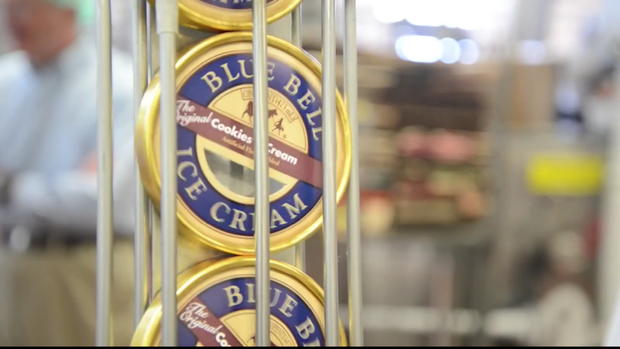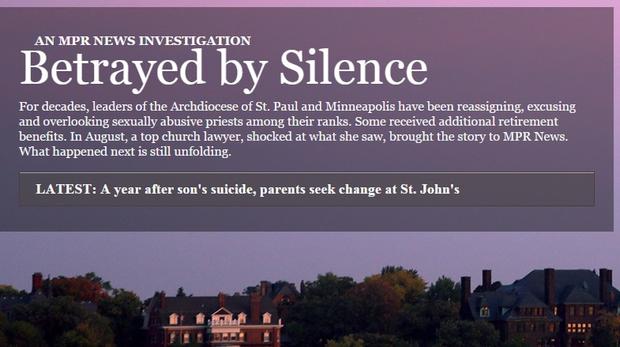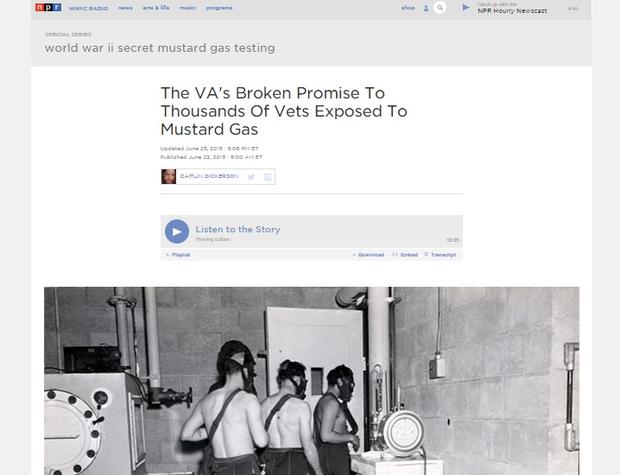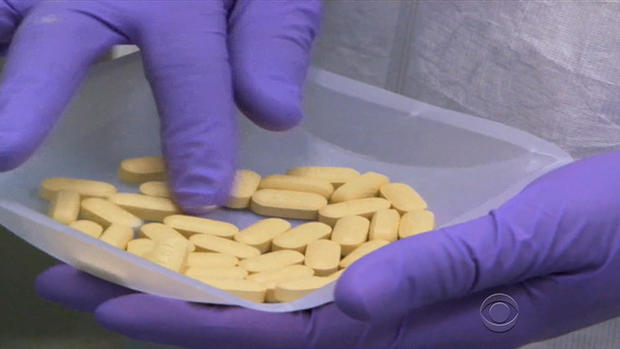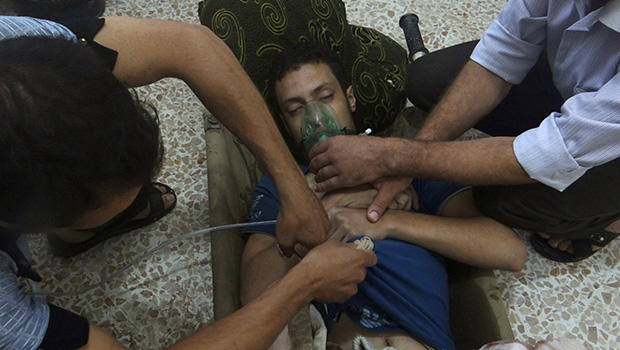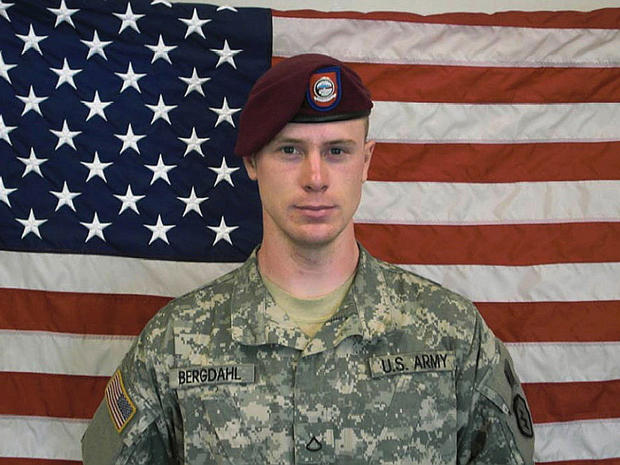The year in Investigative journalism
Investigative journalism is a breed of journalism all its own.
It often takes months, and sometimes years, of reporting for one story. But often these stories are the most important ones told in journalism, exposing injustices or uncovering important truths.
In 2015, there were some particular investigative journalism reports that caught our eye.
Whether it was here at CBS News, on the airwaves at Minnesota Public Radio or in print at the New York Times, here is a list of just some of the investigative journalism of 2015 that had us all talking.
Price of Nice Nails -- The New York Times
In May 2015, the New York Times' staff reporter Sarah Maslin Nir wrote a two-part exposé on how, in her own words, manicurists in New York are routinely underpaid, exploited, and often endure ethnic bias and other abuse.
She focuses' in on a neighborhood in Manhattan's outer borough of Flushing, Queens.
"Among the more than 100 workers interviewed by The Times, only about a quarter said they were paid an amount that was the equivalent of New York State's minimum hourly wage," Nir wrote in her first piece.
Nir wrote that manicurists were compelled to work endless hours just to get by.
"An underground economy has sprung up in Flushing and other city neighborhoods where salon workers live, to help them cope," she writes. "On weekdays, women walk from door to door like Pied Pipers, taking nail salon workers' children to school for a fee. Many manicurists pay caregivers as much as half their wages to take their babies six days a week, 24 hours a day, after finding themselves unable to care for them at night and still wake up to paint nails."
Also in May, CBS News used a hidden camera to find out more about a manicurist at a salon in Midtown, Manhattan.
Speaking in Spanish, a worker described 11-hour workdays with little pay and no overtime compensation. She said her wages were so low she relied heavily on tips, but if the tip was put on a credit card she didn't receive it.
Following the New York Times' investigation, New York Gov. Andrew Cuomo pushed for major reforms in the nail salon industry. He announced the creation of a task force that would recover unpaid wages and shut down unlicensed businesses. In June, lawmakers reached a deal to impose stricter rules at nail salons.
You can read the Times' reporting on the "Price of Nice Nails" here:
Blue Bell Listeria Outbreak -- CBS News
In October, CBS News did a series of investigations on the Blue Bell Ice Cream factory in Texas, that was linked to an outbreak of listeria.
During the outbreak, 10 people became sick and three died. The company recalled 8 million gallons of ice cream. Before this, Blue Bell was the number three brand in the country and was sold in 23 states.
In the three part series, by CBS News investigative producer Emily Rand and correspondent Jim Axelrod, former workers detailed the complaints they shared with Blue Bell management, which went largely ignored. And CBS News looked at how random testing led to the discovery of the deadly bacteria and how investigators were able to crack the case.
On Tuesday, Dec. 29, the Department of Justice opened an investigation into Blue Bell. Sources tell CBS News that DOJ is trying to determine what Blue Bell management knew about potentially deadly hazards in their plants -- and when they knew it.
Check out the series here:
Blue Bell workers detail unsanitary conditions inside plant
Blue Bell listeria discovered thanks to random testing
How investigators cracked the Blue Bell listeria outbreak case
Enslaved Fishermen -- The Associated Press
During more than a year of reporting, journalists with The Associated Press looked at abusive practices in the fishing industry in Southeast Asia.
Four reporters for 18 months tracked ships, located slaves and stalked refrigerated trucks as part of their extensive reporting.
In one piece in the series, an Associated Press reporter features a Burmese slave named Myint Naing, who, after 22 years, was finally able to return home.
"Every year, thousands of migrant workers like Myint are tricked or sold into the seafood industry's gritty underworld. It's a brutal trade that has operated for decades as an open secret in Southeast Asia's waters, where unscrupulous companies rely on slaves to supply fish to major supermarkets and stores worldwide," wrote AP reporter Margie Mason, in one of the many stories in the series.
As a result, the investigations and reports by the AP led to the release of more than 2,000 slaves, and the immediate reaction of major retailers and the Indonesian government, the AP says.
To read the stories in this series, click here.
Betrayed by Silence -- MPR News
This extensive investigation by Minnesota Public Radio, using both radio and print, looks into sexual abuse and cover ups in the Twin Cities Catholic Church in Minnesota.
According to MPR News, for decades, leaders of the Archdiocese of St. Paul and Minneapolis had been reassigning, excusing and overlooking sexually abusive priests among their ranks. In August, a top church lawyer, shocked at what she saw, brought the story to MPR.
The investigation that follows looks at the sexual misconduct and the cover ups within the Church.
MPR News won the 2015 Alfred I. duPont Columbia University Journalism award for this investigation.
According to duPont, MPR's investigation also brought on changes too. As result of the reporting, there was an opening of a criminal investigation of the archdiocese, resignations, forced retirements, leaves of absences, firings and the names of abusive priests were released.
To listen or read MPR News' months long investigation, click here.
Black-Market Antiquities -- CBS News
As ISIS seized territory across Iraq and Syria, they began a systematic campaign of destroying some of the world's most precious heritage sites and antiquities.
Clarissa Ward and CBS News producer Jennifer Janisch contributed a series of original reports that illuminated the extent of these crimes against humanity.
ISIS has demolished precious artifacts and archaeological sites from Syria to Iraq. But as CBS News reported in September, out of sight and off camera, what wasn't destroyed was being quietly sold on a black market that reached Europe and even the U.S.
These reports culminated in a six-month investigation, in which CBS News penetrated the secretive black market trade of antiquities from Syria and Iraq, using hidden cameras to capture the first evidence of an authentic Roman mosaic stolen out of Syria, potentially worth six figures.
The VA's Broken Promise -- NPR
During World War II, 60,000 American troops were exposed to mustard gas during secret chemical weapons experiments.
National Public Radio (NPR) found in their investigation that the Department of Veterans Affairs had made promises to those veterans who were exposed. They were going to locate the men who were used in the tests and they were going to compensate them for the damages the testing did.
But NPR's investigation found, the VA did not uphold those promises.
"NPR interviewed more than 40 living test subjects and family members, and they describe an unending cycle of appeals and denials as they struggled to get government benefits for mustard gas exposure. Some gave up out of frustration," reporter Caitlin Dickerson wrote.
The government did not admit these experiments until 1991, when a group of veterans went public with their stories. And that's when the broken promises began, NPR reports.
The NPR investigation features one harrowing account from a veteran, and his struggle to get help.
You can listen or read the investigation here.
ISIS Theology of Rape -- The New York Times
In this harrowing and disturbing investigation, the New York Times details a culture of rape within the Islamic States of Iraq and Syria (ISIS) and the victims at the center of this rape culture.
"In the moments before he raped the 12-year-old girl, the Islamic State fighter took the time to explain that what he was about to do was not a sin. Because the preteen girl practiced a religion other than Islam, the Quran not only gave him the right to rape her -- it condoned and encouraged it, he insisted," the piece by reporter Rukmini Callimachi begins.
The New York Times piece describes how ISIS uses sex slavery in its conquered regions, and how it uses this sex slavery as a recruiting tool.
"The systematic rape of women and girls from the Yazidi religious minority has become deeply enmeshed in the organization and the radical theology of the Islamic State in the year since the group announced it was reviving slavery as an institution," Callimachi writes. "Interviews with 21 women and girls who recently escaped the Islamic State, as well as an examination of the group's official communications, illuminate how the practice has been enshrined in the group's core tenets."
The full piece can be read here.
Hepatitis C and Veterans -- CBS News
In this investigation, CBS News uncovers the lucrative role of a doctor, employed by the Department of Veteran Affairs, who personally made $400 million from the creation of a new Hepatitis C drug.
The cost of the drugs is preventing veterans from getting the medication that could save their lives.
As CBS News reported in early December, a Senate report found Gilead Sciences, which makes a cure for a fatal form of hepatitis, is more interested in profits than patients. The cure was invented under the leadership of a celebrated doctor in the Department of Veterans Affairs, but at $1,000 a pill, even the VA can't afford to save the lives of veterans who need it.
CBS News speaks with that doctor, and a Vietnam veteran who was told he has five years to live.
You can read and watch the whole story by CBS News correspondent Chip Reid, producer Megan Towey and associate producer Patricia Alulema, here.
A Crime Against Humanity -- "60 Minutes"
In this award-winning "60 Minutes" story, Scott Pelley reports on the 2013 sarin gas attack in Syria that United States intelligence estimates killed more than 1,400 civilians.
Pelley and his team spent months finding survivors of the 2013 attack that killed more than 1,400 civilians and aired their accounts for the first time. They also uncovered footage of its chilling aftermath that it broadcast in the April 2015 report. The "60 Minutes Overtime" feature about the decision to broadcast the horrific footage was the most viewed story in the digital show's history.
CBS News will receive the Alfred I. duPont Columbia University Journalism award for the report. The win marks the 47th duPont for CBS News and the 16th time a "60 Minutes" story or reporter has been honored with it.
This is the third time a Pelley report has won the duPont, considered the highest honor in electronic journalism. The awards ceremony will be held at Columbia University next month.
You can watch the entire report by clicking here.
Bowe Bergdahl -- Serial
While this may not exactly qualify as investigative journalism, "Serial" surely got our attention this year.
The popular podcast "Serial" returned in December with its second season. In its first season "Serial," investigated the 1999 murder of a teenage girl in Baltimore.
But this season, "Serial" took on a different sort of story. Instead of focusing on a murder, it focuses on the story of Army Sgt. Bowe Bergdahl, the former prisoner of war who is now facing military charges.
Bergdahl was captured by the Taliban in 2009 after he left his post in Afghanistan. He was freed in a prisoner swap in 2014, and in March he was charged with desertion and misbehavior before the enemy, which can be punished with a sentence of life in prison.
Bergdahl has not been heard by the public, until now.
"Serial" is airing his interviews with filmmaker Mark Boal, who wrote the screenplays for "The Hurt Locker" and "Zero Dark Thirty."
While only three episodes into the season, this season of "Serial" is already being widely discussed for what Bergdahl has had to say.
The first episode can be downloaded or streamed at the "Serial" website. This season, the podcast is also available on Pandora. It will continue to be available on iTunes and other podcast apps.


